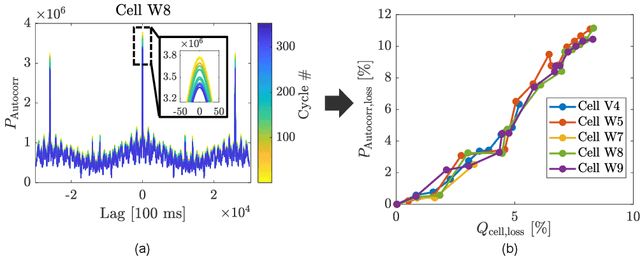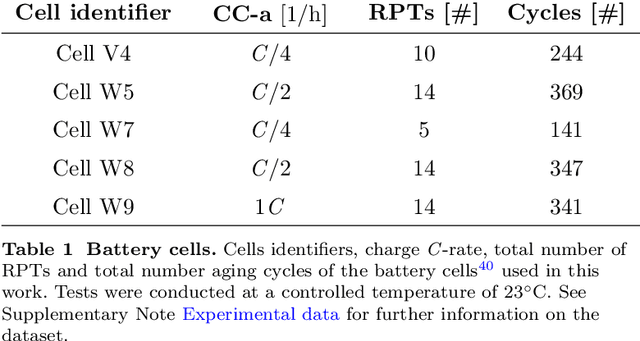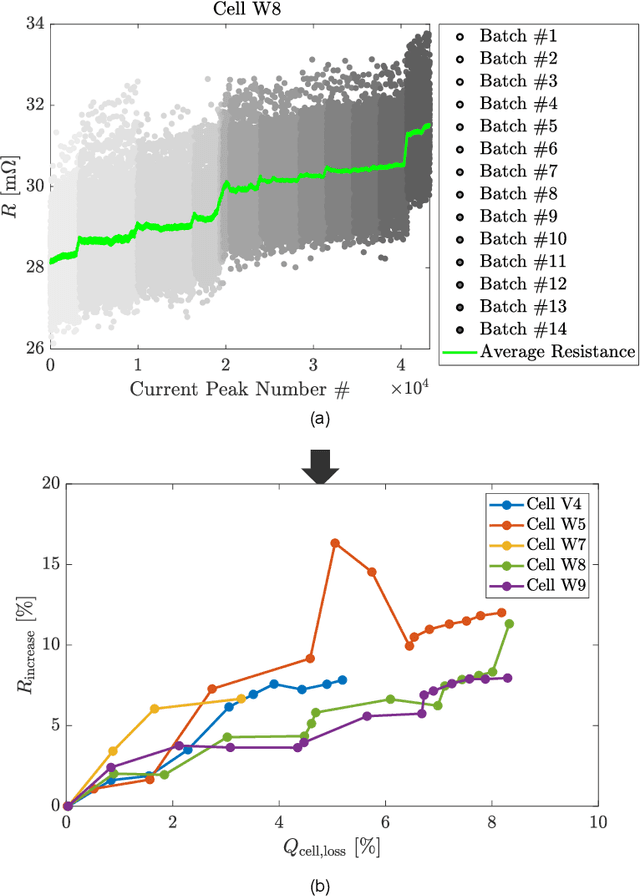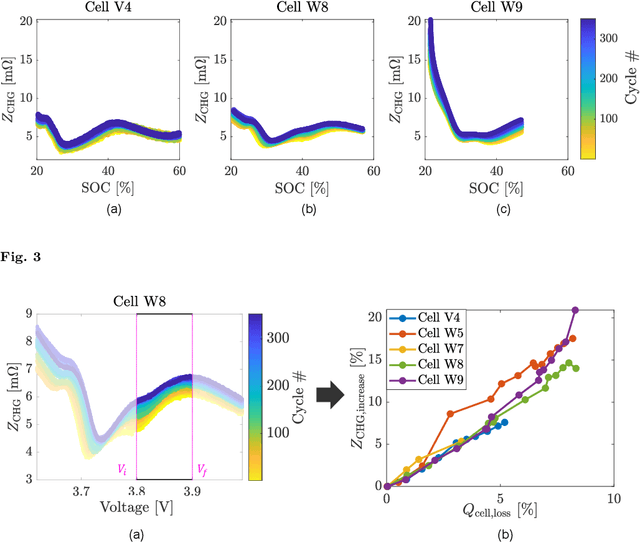Pietro Bosoni
Domain knowledge-guided machine learning framework for state of health estimation in Lithium-ion batteries
Sep 22, 2024



Abstract:Accurate estimation of battery state of health is crucial for effective electric vehicle battery management. Here, we propose five health indicators that can be extracted online from real-world electric vehicle operation and develop a machine learning-based method to estimate the battery state of health. The proposed indicators provide physical insights into the energy and power fade of the battery and enable accurate capacity estimation even with partially missing data. Moreover, they can be computed for portions of the charging profile and real-world driving discharging conditions, facilitating real-time battery degradation estimation. The indicators are computed using experimental data from five cells aged under electric vehicle conditions, and a linear regression model is used to estimate the state of health. The results show that models trained with power autocorrelation and energy-based features achieve capacity estimation with maximum absolute percentage error within 1.5% to 2.5% .
Exploring the Impact of Environmental Pollutants on Multiple Sclerosis Progression
Aug 30, 2024


Abstract:Multiple Sclerosis (MS) is a chronic autoimmune and inflammatory neurological disorder characterised by episodes of symptom exacerbation, known as relapses. In this study, we investigate the role of environmental factors in relapse occurrence among MS patients, using data from the H2020 BRAINTEASER project. We employed predictive models, including Random Forest (RF) and Logistic Regression (LR), with varying sets of input features to predict the occurrence of relapses based on clinical and pollutant data collected over a week. The RF yielded the best result, with an AUC-ROC score of 0.713. Environmental variables, such as precipitation, NO2, PM2.5, humidity, and temperature, were found to be relevant to the prediction.
 Add to Chrome
Add to Chrome Add to Firefox
Add to Firefox Add to Edge
Add to Edge